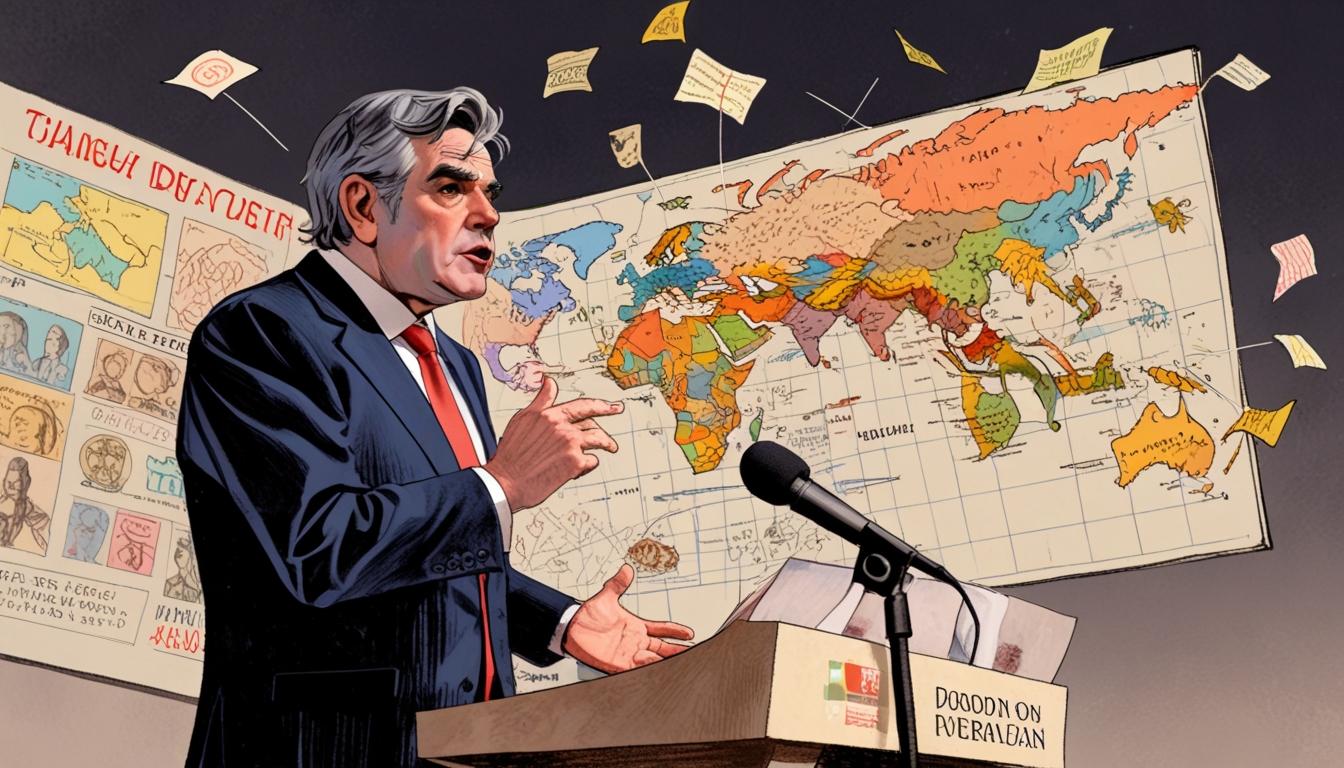Former UK Prime Minister Gordon Brown has voiced strong criticism of United States President Donald Trump regarding the implementation of steep import tariffs, which he claims threaten to “weaponise” the global trading system and risk a “breakdown” in the international economic order. Brown made these comments during an interview that was aired on BBC Radio 4, where he described the potential repercussions of Trump’s trade policies as alarming.
Brown, who led the UK from 2007 to 2010, highlighted the need for global governments and central banks to develop a “global rescue plan” akin to the coordinated efforts seen during the 2008 financial crisis. He proposed that synchronised interest rate cuts be considered to mitigate the economic impact stemming from the tariffs imposed by the US.
His remarks arrive at a time of rising concern within the financial sector, with influential bankers warning that the current US tariff regime could precipitate significant instability in international financial markets. Brown cautioned that failing to act could result in a recession evolving into an economic downturn resembling the Great Depression of the 1930s. He called for finance ministers and central bankers from around the world to convene in Washington following the Easter weekend to address the unfolding crisis during the annual meetings of the International Monetary Fund and World Bank.
The recent turbulence in financial markets has been attributed to Trump's introduction of tariffs, which he dubbed “liberation day.” The president's policies sparked fears of a global recession that may lead to a full-blown financial crisis. Following a considerable sell-off in American government debt, Trump appeared to backtrack slightly, exempting certain products, such as smartphones, from the heaviest tariffs; however, he still maintained a 10% tariff on all countries and imposed a staggering 145% levy on China, citing the country as responsible for the decline of manufacturing jobs in the US.
The chief executive of JP Morgan, Jamie Dimon, indicated that the US may face a substantial 50% likelihood of entering a recession this year, reinforcing concerns expressed by financial leaders. Peter Navarro, a prominent figure in Trump’s trade policy team, mentioned in an NBC interview that the unfolding scenario was anticipated and described tariffs as the current defence against alleged non-tariff barriers and currency manipulation.
Investor Ray Dalio, founder of Bridgewater Associates, warned that a tariff war could hasten the deterioration of post-World War II trading arrangements and possibly lead to global conflicts. He proposed that a return to elevated tariff rates after a temporary pause could be “highly disruptive to the world economy” and risk military escalation.
Brown asserted that Trump has turned the interdependence of global trading and financial systems into a weapon. He underscored the necessity for a concerted effort among central banks, suggesting that countries such as Canada, Australia, Japan, South Korea, and those in the EU must collaborate in this effort.
Despite the call for action, some central bankers express hesitation about cutting interest rates due to fears that increased inflation stemming from tariffs could exacerbate existing economic pressures. Brown acknowledged this risk but contended that the immediate effects of tariff-related turmoil have yet to seep into the general populace's living standards.
Amid this crisis, the UK Labour government, led by Keir Starmer, has sought to maintain a cautious diplomatic relationship with the US. Brown conveyed understanding for this approach but emphasised the importance of the UK exploring partnerships beyond the US to help “rebuild the world order” based on principles of law, human rights, and climate action.
Brown elaborated on the shift in global dynamics, suggesting that the world is transitioning from a “unipolar” order dominated by the US to a “multipolar” one. He advocated for the necessity of dialogue and collaboration among countries to re-establish a stable global order, reinforcing the need for engagement and consultation in the current geopolitical landscape.
Source: Noah Wire Services
